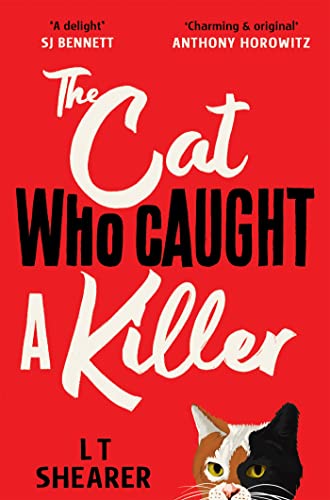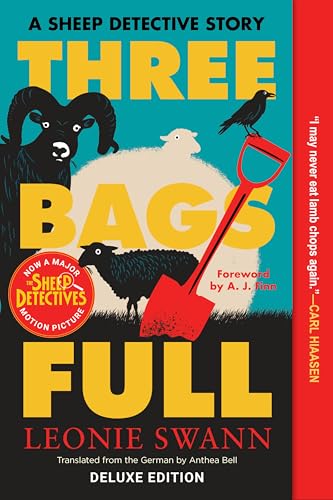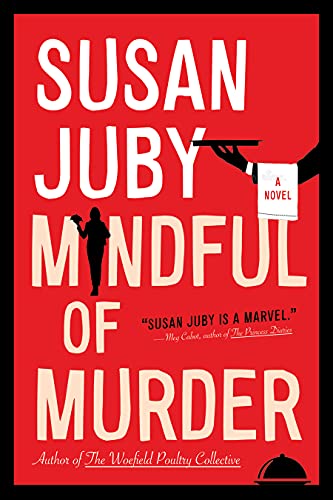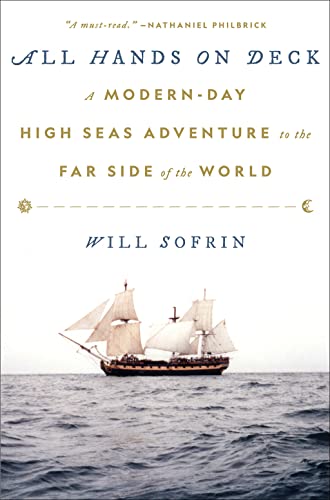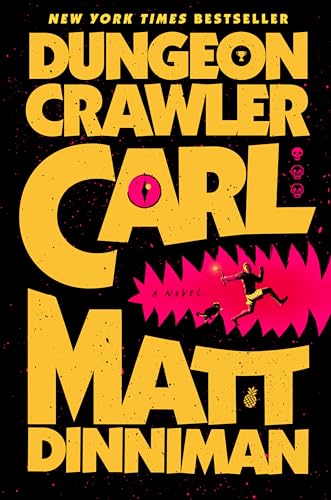If I had known there was a talking cat in this book, I likely wouldn’t have picked it up. I’m not a huge fan of anthropomorphized animals and this one didn’t really engage me any more than previous ones have. In addition to this plot point not working for me, there are a lot of small, unnecessary details scattered throughout the novel and there is some uncomfortable political commentary sprinkled in as well. Plus, the mystery is quite simplistic and easily figured out.
BookNAround
books, running, life
Thursday, January 29, 2026
Review: The Cat Who Caught a Killer by L. T. Shearer
If I had known there was a talking cat in this book, I likely wouldn’t have picked it up. I’m not a huge fan of anthropomorphized animals and this one didn’t really engage me any more than previous ones have. In addition to this plot point not working for me, there are a lot of small, unnecessary details scattered throughout the novel and there is some uncomfortable political commentary sprinkled in as well. Plus, the mystery is quite simplistic and easily figured out.
Wednesday, January 28, 2026
Review: Three Bags Full by Leonie Swann
Shepherd George Glenn cares deeply for his sheep. He even reads to them every day. His flock is very loyal to him in turn. When they find him dead in the pasture, killed by a spade, they decide that they need to figure out who killed him, using some of the knowledge they’ve gained from George reading them mysteries. The main sheep investigating the murder are Miss Maple, Othello, and Mopple the Whale. They are thoughtful and philosophical (there’s even a debate about whether human beings have souls or not) and they overhear a lot of information from the people around them. They are well drawn and have very distinct characters with their own foibles, strengths, and fears. Sometimes following the sheep’s reasoning is difficult and it’s hard to tell if that’s a translation issue or if it is meant to be written that way because, well, sheep. In general it was entertaining to be in the minds of the sheep, to watch them try to reason out the motive behind the murder, to try to understand the confounding humans, to get distracted by good grass and herbs, to try and connect the clues they’ve stumbled across, and in the end, to share their conclusion with the people who can bring the murderer to justice. The end was a little drawn out but overall it was a pleasing read.
Tuesday, January 27, 2026
Review: Mindful of Murder by Susan Juby
Helen Thorpe, a former Buddhist nun, is a newly graduated butler anticipating her first job working for a very and philanthropic family when she discovers that her former employer and friend, Edna, the owner of the Yatra Institute, a spiritual retreat, has died while on a silent retreat and her will asks that Helen help determine which of her often unpleasant nieces and nephews will inherit the Institute. Helen delays her job, and with the help of two of her butlering classmates, she heads to BC to try to determine who will best run the Institute in the future. That she starts to suspect foul play and then is certain Edna was murdered doesn’t help in her deliberations as she leads the potential heirs (and potential murderers) in classes on meditation, flower arranging, and dancing.
Juby has drawn quirky characters with all the flaws that make them fully human, even if they don’t seem like people this reader would have any interest in knowing in real life. The setting is beautifully rendered and offers an engaging backdrop to the shenanigans and personal growth of the heirs. Uncovering who murdered Edna should have taken more of the center stage but the mystery felt like a background to the characterizations. This would be a more enjoyable read for people who like slower, character driven tales than those looking for a plot driven cozy mystery.
Monday, January 26, 2026
Review: All Hands on Deck by Will Sofrin
Sofrin was already a professional sailor and ship’s carpenter (chippy) when he signed on as a deckhand to get the Rose from the East Coast, through the Panama Canal, and up to California for the movie studio owners. He recounts the average, the extraordinary, and the terrifying that all made up the voyage, from daily watch, to a dismasting, to hurricane force winds threatening to sink the leaking wooden ship. Sofrin narrates the experience of sailing on Rose generally as well as his own personal experiences on and offshore with his fellow crew mates. These first person accounts are also combined with brief asides about what life would have been like on a warship like Rose in the 18th century as well as pieces of the O’Brian source material in the series Master and Commander. This is really a memoir of Sofrin’s months onboard, his friendships and a blossoming relationship, and account of the journey itself (there’s very little about the movie included) but sailors, unique bunch that they are, and those who are attracted by the romance of a sailing life will enjoy reading about this once in a lifetime trip.
Sunday, January 25, 2026
Review: Chasing the Thrill by Daniel Barbarisi
Combining both his own experiences trying to solve the riddle of where Fenn left his treasure with the history of the hunt, positive and negative, and the community surrounding the hunt, especially the most well-known searchers, Barbarisi looks at what compels people to join in a hunt of this kind, some even to the point of bankrupting themselves, and what compels a person like Forrest Fenn, eccentric as he was, to create the hunt in the first place. He is even-handed and fair in his reporting on the culture, the rumors, and the mythology of the search for Fenn’s treasure. Getting involved as a searcher himself gives the recounting a nice, participatory first person aspect that pure reportage would not have offered. There is some repetition here and there remain some unanswered questions but overall, this was an engaging read about a fascinating cultural phenomenon. Just don’t do too much research into it before reading if you want to maintain the rising tension of the tale.
Saturday, January 24, 2026
Review: Dungeon Crawler Carl by Matt Dinniman
All of a sudden, one night in the middle of the night, all the buildings on Earth collapse, killing everyone inside instantly. People outside all survive the “transformation” and then must decide if they are willing to play the televised, murderous game that aliens have devised for the planet. If they agree to play, they must find their way from dungeon level to level, fighting their way past scary creatures, earning points by finishing quests or killing the baddies, and learning who among the remaining humans are trustworthy and who are not. Carl is outside chasing his ex-girlfriend’s cat, Princess Donut the Queen Anne Chonk, when the buildings collapse so both he and Princess Donut survive. Carl is wearing less than optimal (and fairly ridiculous) clothing, boxers, a leather jacket, and pink ill-fitting Crocs, for the weather. When they go down into the first dungeon, it is very debatable whether Carl is in charge or whether he’s Donut’s sidekick. Fights to the death and much hilarity ensue as Carl and Donut try to both be entertaining enough to be tv crowd favorites who earn special bonuses from across the galaxy and to survive truly life threatening events together.
As this is the first in a series, Dinniman drops hints as to where the story line will go in future books, but the story is complete enough in its own right to be a satisfying read. The action is a gentle rising/falling structure that mimics video game quests and rpg fans will likely find gems in the story that I completely missed. There is a lot of humor here as well as cleverly interwoven commentary on human being’s moral compasses and the unknown, potentially nefarious goals of government. The fights are quite detailed, brutal, and visually evocative which might be tough going for some readers. The humor does help and the snark is definitely on point. I don’t know if I’ll continue with the series but I do know that both of my sons, for whom the book was actually bought (we pre-read Christmas presents in this family), will enjoy it a lot.
Thursday, January 1, 2026
Christmas (well, really New Year's) letter for 2025
January: D. went to Chicago and Phoenix this month and K. went to Lexington to go wedding dress shopping with R. They found THE dress at the very first store, which was seriously good luck given K.’s longstanding dislike of shopping.
February: D. went to Chicago and Boston. K. had her first ever DNF (did not finish) in a race. She and the two friends she was running with planned to not finish (long story) but boy was it hard to abandon her first child perfectionist tendencies. D. wrecked his car this month, a rather expensive way to get a new car.
March: K. and T. both celebrated non-milestone birthdays this month. Other than that, no idea.
April: You know how they say bad things come in threes? Both T. and W. wrecked their cars this month. So much for “Do as I say, not as I do.” Definitely costly to imitate D.!
May: D. went to Detroit and K. ran the Mountains to Main half marathon with friends. R. passed the first of her six licensure exams to be a fully-fledged architect and T. was hired on full time as a Staff Geologist for Weaver Consulting. He’s still dealing with hot trash water but getting to do more interesting things too (although how you beat tramping around in hot trash water in a landfill, I don’t know). K. and D. quietly celebrated their 30th anniversary this month.
June: K. headed to Michigan for the summer and being gone means she had no idea where D. was traveling.
July: W. brought his girlfriend up north to meet some of the family this month. Her first day there, K.’s mom tripped and split her face open on a rock, requiring 13 stitches and some good painkillers. The second day, fishermen ran over the waterline leaving us without water so the poor girl was told “no flush, no brush, no shower” until it was all fixed. Pretty sure she didn’t run away screaming only because we’re on an island and she was trapped. Also of note, copious amounts of blood will stain wooden decking for a very long time and no amount of scrubbing helps, so plan your murders accordingly.
August: W. graduated from FAU with his MBA this month and K. and D. got to experience the dubiously sweaty pleasure of Florida in August. Also this month, T.’s girlfriend, A., moved in with him in Lexington so we’ve acquired another grandcat.
September: This month was all about the wedding. It was a beautiful, blustery day on Mackinac Island and K. can tell you all the things that went wrong behind the scenes (so many things!) but at the end of the day R. and J. ended up married and happy and that’s what counts. T. stepped up to be the DJ for the wedding and if you need him, I imagine you can book DJ Jazzy T at the friends and family discount. The weekend after the wedding found K. back in North Carolina running a 50K (31.2 miles for the non-metric among you). She had a great time and is planning to do it again next year—plus she’s likely to be insufferable and mention that she’s an ultramarathoner in every conversation from here to eternity. You’ve been warned.
October: D. went on a football guys’ weekend to Charleston and Columbia while K. went on a girls’ weekend to Dreher Lake State Park in South Carolina this month. Maybe soon they’ll actually take a trip together (like the 30th anniversary trip they’ve discussed but not planned yet!).
November: D. went to Denver. All the Ks. converged on Lexington for Thanksgiving. Cooking a meal for eleven out of an Airbnb kitchen is less than ideal but no one got food poisoning and everyone had food so we’re calling it a success even if several dishes didn’t make it on the table on the day of. Who needs cranberry anyway? (Short answer, we all do, but eating it with leftovers instead is okay too.) Also, K. convinced everyone to do the Turkey Trot with her. She beat them all (the only kid running it was injured and the rest of them walked but we don’t have to admit that) and has bragging rights for the next year.
December: D. went to New York. R. took her third licensure exam and is now legally 1/2 an architect. Most importantly this month, D. gave K. her Christmas present early and Miss Harper, the cutest little ball of schnauzer fluff you’ve ever seen, joined the family. We’re deep into housebreaking and it looks to be a long road but she’s worth it. Ozzie and Sammy were less than delighted by the gift of Harper but they’re coping, unless she keeps stealing their cat treats; then it might be out and out war.
As the year comes to a close, we once again hope that you are surrounded by peace, love, and happiness now and throughout the coming year.
Subscribe to:
Comments (Atom)
Popular Posts
-
When I saw the gorgeous boat on the cover of this book and found out that it was mostly set amongst summer cottages on a lake, I knew that ...
-
Cinco de Mayo is not the celebration of Mexican Independence. It's actually a regional celebration celebrating the victory of Mexican f...
-
Ever since the runaway success of 50 Shades of Grey, the (re)discovery of erotica has been foremost in the book world. People ask me all t...
-
This title makes me want to mimic monster truck commercials. MASSIVE, Massive, massive. BOOK, Book, book. GIVEAWAY, Giveaway, giveaway. ...
-
Authors, Publishers and Publicists… Thank you for considering me for the privilege of reviewing your books. I am a very eclectic reader and ...
-
It was another slowish week in my mailbox but I'm not complaining. I am still up to my eyeballs in books I need to read for one thing o...
-
A tale of adultery that manages to withhold judgment as it traces the impact on all four people touched by an affair, Kylie Ladd's After...
-
Today being Black Friday and all, some of you are probably out scouring the stores for the best possible deals for the special people on you...
-
Thanks to the lovely folks at Hachette Books I am giving away three copies of The Little Giant of Aberdeen County by Tiffany Baker. This ...
-
I first read Kate Atkinson's Behind the Scenes at the Museum more than 20 years ago and was impressed by the creativity and writing ta...
